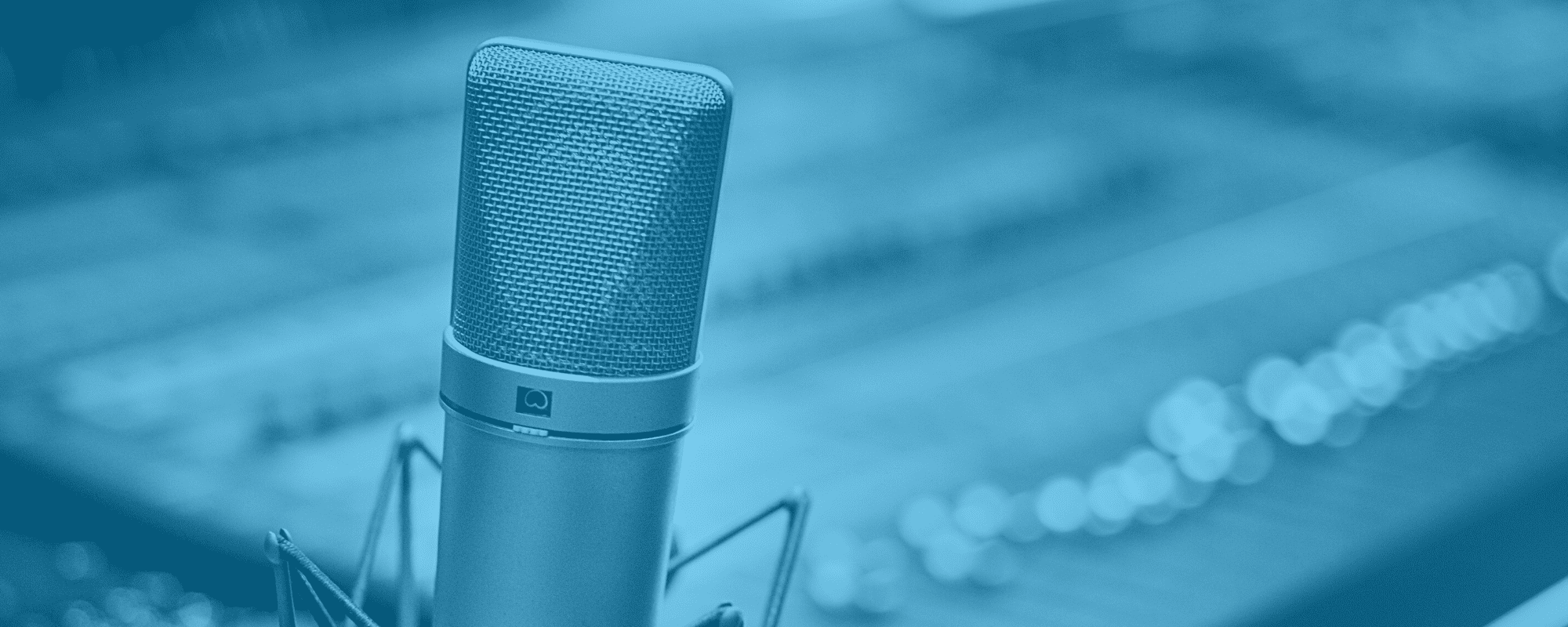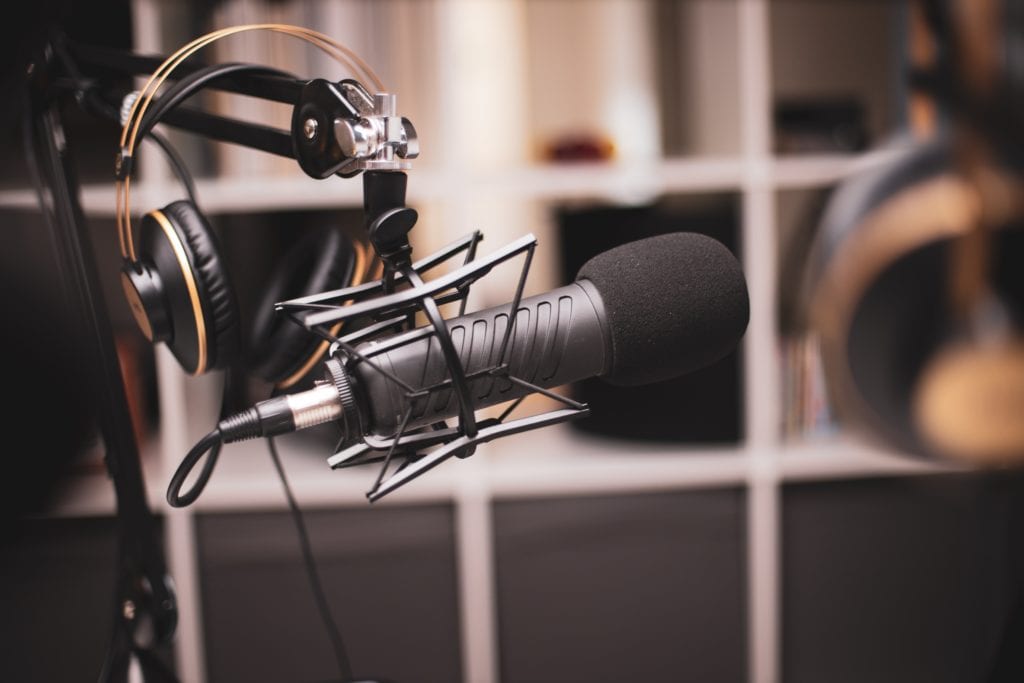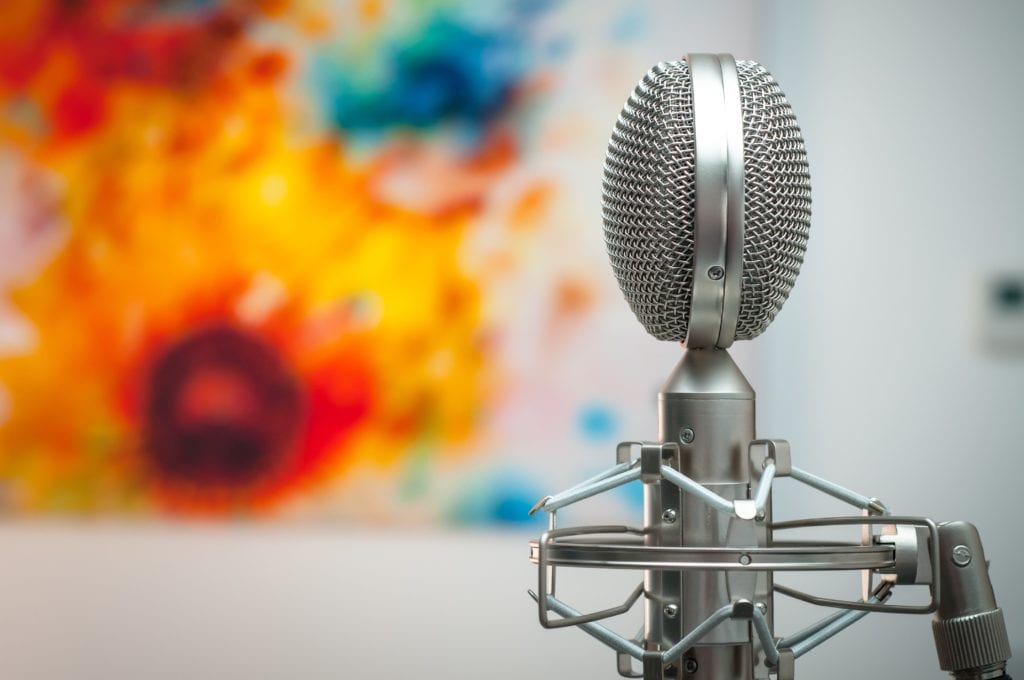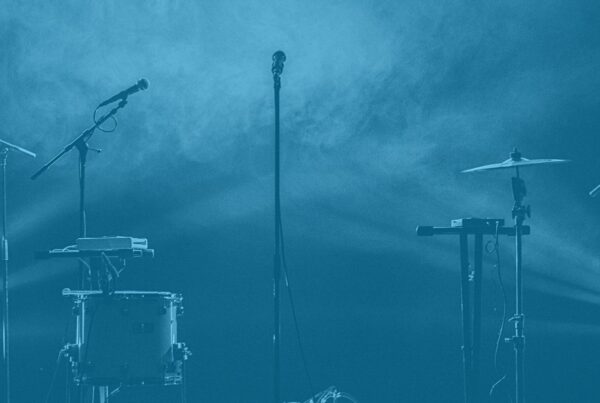You asked and the Event Tech Podcast delivered – it’s time to talk about the best speaker kits! Because now that we’re several months into the pandemic and, consequently, the world of virtual events, there can’t be any more excuses. We had the time to learn. And we had the time to put into that sweet research in order to get acquainted with the technology available. But it’s always good to get some input from the experts…so it’s Will Curran and Brandt Krueger to the rescue!
Our lovely hosts have years of experience as podcasters, speakers, and technical producers. So who better than the wonderful duo of event tech nerds to give you the top recommendations? Without further ado, here are Will and Brandt’s greatest pieces of advice on the audio portion of the best speaker kits you could ask for to set yourself and your speakers up for success.
Why Talk Gear?
“Very early on, I was calling AV companies trying to get, AV in a box. What can I get for a microphone, a couple of lights, and a nice camera? And I’d get a bid back that was like five grand. Because it’s equipment designed for studio-level lenses on their cameras and high-quality microphones. So there’s no way you’re going to send this out. So slowly over time, and then also at the beginning everything was sold out. You couldn’t buy a webcam to save your life”, says Brandt.
“And so we wanted to have an episode dedicated to the different levels of home tech that are available to increase the production values for your remote presenters, for your zoom calls. And for anything, really. Anybody who’s delivering presentations from home, or even just wants to look better on their call. And explain what are our best speaker kits at this point”, he adds.
The Best Speaker Kits: Basics
Will kicks it off with the essentials to look for when trying to build a good set up. “So audio first, a microphone, right. Usually, a microphone set up, a way to listen, so headphones too. Lighting should be next. So probably some sort of lighting or way to make sure that you’re getting enough light in the room. Because the more light you can get in on somebody, the better the camera’s going to look. So even the best cameras can sometimes look crappy if there’s not enough light”.
“And then probably camera, followed by the setup, your backdrop, the way things look behind you. So those are the essentials right there”, he explains.
The Microphones
“I think everyone immediately likes to gravitate towards podcast mics, but I think there’s a first step that you can take that’s cheaper and better”, says Will.
“I did land on the USB headset side. And I found that the Razor headsets, which is actually a gaming brand actually sounded pretty good in the microphone”, says Brandt. “Most of them look like tank commander, gaming headsets. But there are a couple of different models, almost like the old Walkman style headphones. On the ear, with a single headphone and a thin finished mic. So those all sounded pretty good and they didn’t look ridiculous. So that’s kind of like the very bottom level plug and play”.
Will mentions calling headsets. “So I liked those a little bit better than a gaming headset. Because they tend to have that smaller profile. So I recently started using more office headsets and I really am enjoying what Jabra has been putting out. Jabra has had really good audio quality across all their product lines”. Brandt has a different opinion, though. “I am actually not a fan of these. They sound great, the actual audio quality of the headphones, I think it’s pretty good. And they’re Bluetooth. But the microphone, I think sounds like a 1960s radio operator or something along those lines”. It’s better for calls, for sure!
Be Adventurous!
When it comes to finding the best speaker kits, Brandt wants you to go wild. “It’s really important to try everything. Really, do seriously try everything. We actually skipped over something which is no microphone, just going with the internet. We hate that. So that’s why it’s not even an option to go with the internal microphone”.
“It’s huge to have any microphone instead of the internal microphone on your machine. Try everything. Grab the set of headphones that you got free with a phone four years ago and you threw in the drawer. Because those might sound better than a wide-open mic on your laptop. And they might even sound better than these $300 Jabra Bluetooth headphones”, he adds.
Medium Range To High End
“I’d say the medium range are the USB podcasting mics. So the medium-range would be like the Yeti blue snowball, all of the podcasting mics that are usually USB based”, says Brandt. “They’re not terribly expensive, a hundred bucks or something like that. And they work really well. All of these microphones always work better the closer they are. And so that’s where it’s kind of nice to get that Yeti where it’s got that classic, newscaster desk looking type on it. So, because the closer they are, the better it’s going to look. And I think the biggest mistake is when people are trying to get those mics out of the frame”.
“Shure just came out with a classic Shure SM 7 B, which is a high end, classic podcasting microphone. And people all the time say it’s great, but it needs all these extras, a cloud lifter, and all those things. They just came out with the USB microphone. I think it’s like 150 bucks. And it sounds almost as good as their $200 or $300 one that needs an extra accessory that only goes XLR, which needs an audio interface. And I hear a lot of good things about it. So I would recommend checking that one out too”, says Will.
Even Higher!
“Then we move on to the higher end side of things. Not only does it get a little bit more expensive, but you’re also getting a little bit more complex in your setup. So this is where we talk about the XLR microphone, using a microphone that you had used normally on stage. The Heil PR 40 is what I use on this microphone that runs into an audio interface. The audio interface is what converts XLR into USB essentially, and gives you the volume gains and monitor abilities”, Will explains.
“The other piece of gear that I use, when I present, is a Lavalier XLR kind of system that you would normally use for recording video. So I use the AVX system by Sennheiser. It’s a little small, receiver and transmitter, and I do a Lavalier microphone, which I really like. Because when I’m on a frame on camera, the podcast mic, as much as I like the way this looks, sometimes I’m presenting, I’m moving my arms around. I want to be able to walk around the room and make dramatic things”, he adds.
What NOT To Do
One last thing about the best speaker kits and the audio portion – what not to do! “Any type of Bluetooth headphones that are completely wireless, that there’s nothing hanging down near you, that the microphone is in your ear. So this is like your AirPods. So it’s not just about the brand to me, but the fact that the microphone is so far away from your mouth, it picks up so much noise. It tends to get that telephone sound on top of it. Because the microphone has to be really small”.
“Plus the connectivity issues of Bluetooth and all of that. So just be really careful. Don’t ever let your presenters use them. Avoid those sort of things and you’ll be doing much better getting a $30 USB headset. I’ll take that over AirPods”, says Will.
Audio Monitoring
Let’s just talk about listening now. And Will’s number one tip? “Just any old pair of headphones is going to be better than nothing. And if you’re worried about how they look like in the shot, you can actually just run them down the back of your shirt instead of the front. Just don’t monitor your audio from the speakers. Because then you get that feedback, it’s terrible”.
You can also take it up a notch with audio monitoring. “I actually bought what’s called wireless in ear monitor kit, which basically allows you to use headphones wirelessly. It just takes what a normal headphone output is and turns it wirelessly. So I found this really good one by a company called XVIVE. And it got recommended by my audio engineers because it’s not expensive”.
The Best Speaker Kits: Last Advice
As they wrap it up, Brandt and Will leave some extra advice on achieving the best speaker kits. “So as when we talk about video, when we talk about backgrounds, when we talk about lighting, I think it’s really important to record yourself as part of that try everything mentality”, says Brandt. “Just open up a zoom call with yourself and hit record and then switch the outputs, switch the input, try different headphones, try different microphones, different lighting setups. Especially when it comes to audio, that’s when it’s really important. I think to record yourself and listen to the differences”.
“See what sounds good, see how close does it have to be. It’s important then for you to hear that difference and say, wow, that really makes a difference having that microphone two inches away from your face as opposed to will it work being out of frame, but it sounds so much better when it’s in frame”, he adds.












